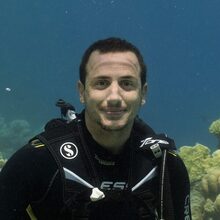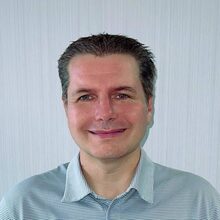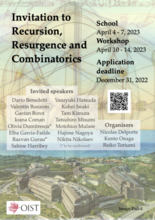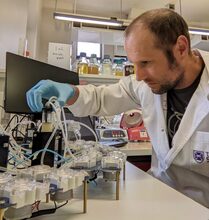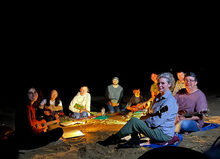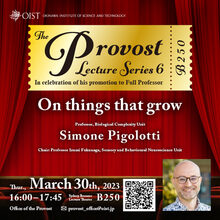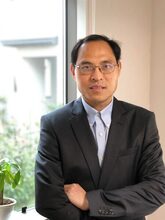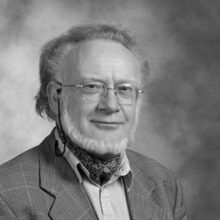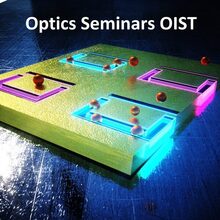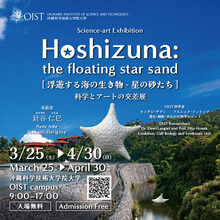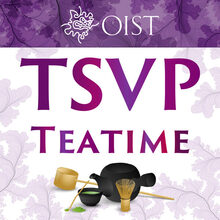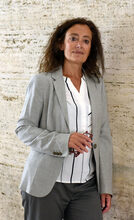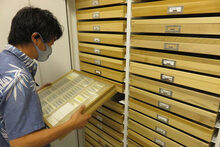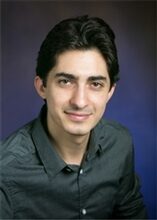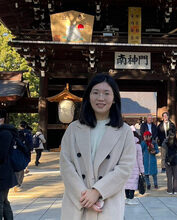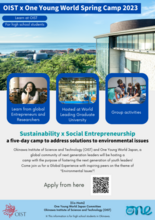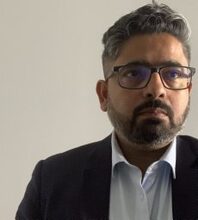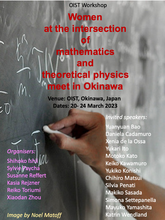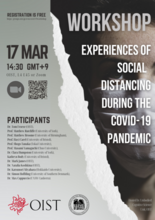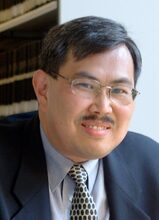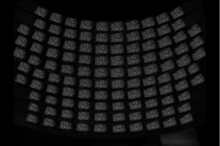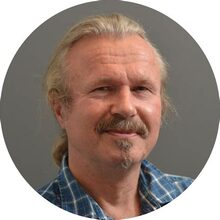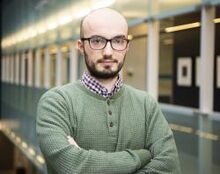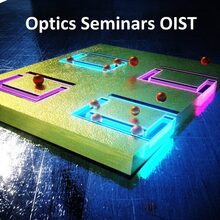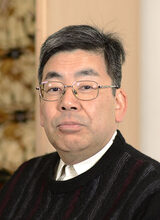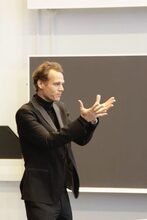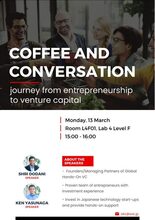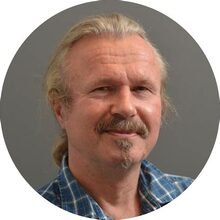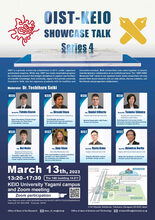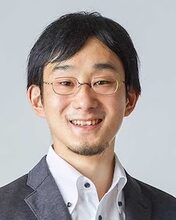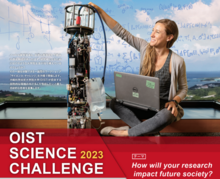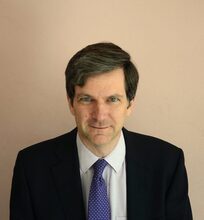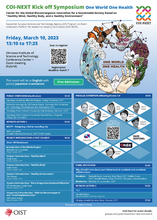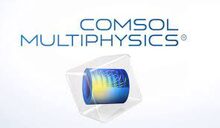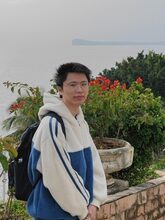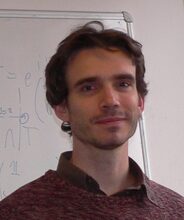Past Events
"Multidimensionality of leadership and emergent feedback mechanisms revealed by interspecific groups" by Dr. Eduardo Sampaio
Dr. Eduardo Sampaio , Postdoctoral Researcher, Department of Collective Behavior, Max Planck Institute of Animal Behavior
第1回 事務職員向け勉強会 ❘ #1 Study Sessions for Administrative Staff
*Japanese session. English sessions will be held from September to December.
C-Hub 第1回 事務職員向け勉強会 「研究者の活動」 (日本語)
Speaker: Mizuki Shimanuki, Provost Office. Facilitator: Ayumi Nagai, C-Hub
MiS Seminar Series: Quantum Biology: radical pairs under the microscope
Speaker::Jonathan R. WOODWARD
Professor of University of Tokyo Graduate School of Arts and Sciences
Speciality: Physical Chemistry,Photochemistry,Spin Chemistry
https://www.u-tokyo.ac.jp/focus/en/people/people100335.html
OIST Workshop "Invitation to Recursion, Resurgence, and Combinatorics"
OIST Workshop | Website | Main organizers: Reiko Toriumi (Gravity, Quantum Geometry and Field Theory Unit) and Kento Osuga (University of Tokyo) | OIST members are welcome to attend all scientific sessions (registration required).
[Seminar] Why resource dynamics matter in microbial communities
Speaker: Dr. Andrew Letten, ARC Fellow & Lecturer in Quantitative Biology at the University of Queensland
Uke Club Meeting - Seaside Lounge OR Beach!
In this meeting we will discuss the proper method to cook and eat a soprano ukulele.
[ONOS Seminar Series] Professor Takeshi Sakurai: Induction of hibernation-like state in mice
OIST Neuroscience Club is excited to host Prof. Takeshi Sakurai from the International Institute for Integrative Sleep (WPI-IIIS) Medicine, University of Tsukuba. Everyone is welcome to join the seminar!
The Provost Lecture Series 6
【Seminar】Diamond MEMS: from fundamentals to sensing applications
Speaker: Dr. Meiyong LIAO, a Chief Researcher at National Institute for Material Science
Zoom :
https://oist.zoom.us/j/96289625266?pwd=TFdtZmRqbG5HSUhCa0xseit5ellIZz09
Passcode: 313298
[Seminar] Models for the evolution of respiratory diseases: the interplay of limited cross-immunity with infectivity that decreases with virulence
Professor emeritus Hans (=J.A.J.) Metz, Institute of Biology and Mathematical Institute, Leiden University, the Netherlands
[Date / Venue are changed] Seminar: “Ernst Haeckel – the greatest German Zoologist? ” by Prof. Dr. Rolf Beutel
Speaker: Prof. Dr. Rolf Beutel, Friedrich Schiller University Jena, Germany
Date
Old: Monday, March 27 , 2023 (11:00 - 12:00)
New: Wednesday, March 29 , 2023 (11:00 - 12:00)
Room
Old: Seminar Room C209, Center Building
New: Seminar Room C700, Lab 3
[Seminar] 'Levitodynamics: Optomechanics with a levitated nanoparticle' by Prof Romain Quidant
Speaker: Dr. Romain Quidant
Professor, Nanophotonic Systems Laboratory, Department of Mechanical and Process Engineering, ETH Zürich, Switzerland
[Seminar] "Evolution of operon formation in the laboratory" by Mr. Yuki Kanai
Mr. Yuki Kanai, PhD Student, Department of Biological Sciences, University of Tokyo, Japan
“Hoshizuna: the floating star-sand” art installation
“Hoshizuna: the floating star-sand” art installation
From Saturday, March 25, through Saturday, April 1, OIST will house giant balloons in the shape of Hoshizuna, or Okinawa star sand.
A New Paradigm: Pain Recovery is Possible Dr. Les Aria/ 慢性疼痛の回復への新たな視点 レス・アリア博士
This presentation will cover a new perspective on the definition of chronic pain, coupled with the new brain studies postulating that emotional and physical pains share the same neural networks.
Sanshin classes by Satsuki Agena (January to March)
Sanshin classes by Satsuki Agena (January to March)
TSVP Anniversary Teatime
"TSVP Teatime": informal discussions and getting to know each other
Phases and topological defects in two dimensions, Prof. Leticia F. Cugliandolo
Prof. Leticia F. Cugliandolo, Sorbonne Université, Laboratoire de Physique Théorique et Hautes Energies.
Langage: English.
Discussion - OIST Natural History Collection
Discussion of progress and roadmap for founding an OIST natural history collection.
"Population Dynamics of Balanced Growth in Bacteria" by Dr. Farshid Jafarpour
Online seminar, hosted in C015 (Lab 1)
Dr. Farshid Jafarpour (Assistant Professor Utrecht University)
(Zoom link in description)
Environmental Science and Informatics Users Meeting
In this meeting, we will present information about the new Environmental Science and Informatics section in RSD and ask for feedback from users or potential users of our services. In the interests of keeping the meeting manageable we would prefer to have one representative per unit.
Using superconducting elements to explore the oscillatory Unruh effect and to obtain entangled photon pairs produced from the vacuum
Speaker: Dr. Hui Wang, Riken
Target Audience: Intern, Students, PostDocs, and those who are interested in the same research field.
OIST x OYW Spring Camp 2023
OIST x OYW Spring Camp 2023: a five-day camp for high school students in Japan to address solutions to environmental issue.
[Seminar] Kavan Modi (Monash), Quantum Chaos = Volume-Law Spatiotemporal Entanglement
Seminar by Kavan Modi (Monash), Mon Mar 20 2pm JST
Women at the Intersection of Mathematics and Theoretical Physics Meet in Okinawa
OIST Workshop | Website | Main organizer: Reiko Toriumi (Gravity, Quantum Geometry and Field Theory Unit) | OIST members are welcome to attend all scientific sessions (registration required).
Women in Mathematics Photography Exhibits
Photographs taken by Noel Tovia Matoff of women mathematicians from around the world.
Information Processing Society of Japan - 255th Natural Language Processing Workshop (情報処理学会 第255回自然言語処理研究会)
This is an externally organized event, For more information please go the conference website (Japanese language only).
Experiences of social distancing during the COVID-19 pandemic
The workshop will take place on March 17th at 14:30 GMT+9 in Lab4, room L4E45 and online via Zoom: https://oist.zoom.us/j/94928028761?pwd=akM1aktLcXhkeG1xUUlGVXV5RFdhQT09
Please, review the workshop program and talks .
Registration is now open!
Seminar "From Metallocenes to Post-Metallocene Polymerization Catalysts" by Prof. Jun Okuda, RWTH Aachen University
Dr. Jun Okuda, Professor, Institute of Inorganic Chemistry, RWTH Aachen University. Language: English
OIST Innovators Society - Bagasse Upcycle
The OIST Innovators Society is hosting an informal seminar with Shinji Odo, Founder and CEO of BAGASSE UPCYCLE Inc. ( https://bagasse-upcycle.com/home/ ) – an Okinawa-based startup whose mission is to change people‘s clothing consumption behavior in tourist destinations and travel scenes in a sustainable way.
Uke Club Meeting - Seaside Lounge OR Beach!
Fun fact: Beyonce's famous "Single Ladies" is in fact a parody of an old Vaudeville song called "All the Ukuleles"!
Seminar "The 100-Eyes Particle Image Velocimetry and Thermometry Using a Mirror Array" by Prof. Jun Sakakibara
[Speaker] Prof. Jun Sakakibara, Meiji University
"Cryo-EM - an ever lasting challenge!" Prof. Klaus Qvortrup
Dr. Klaus Qvortrup , Professor at the Centre for Integrative Microscopy, Biomedical Institute, University of Copenhagen, Denmark.
Virtual seminar: "Any consistent coupling between classical gravity and quantum matter is fundamentally irreversible" by Dr. Thomas Galley
[Seminar] 'Ultrafast measurements, extreme events, and fifty years of solitons in nonlinear fibre optics' by Prof John Dudley
Title: Ultrafast measurements, extreme events, and fifty years of solitons in nonlinear fibre optics
Speaker: Dr. John Dudley Professor, Institut FEMTO-ST, Université de Franche-Comté-CNRS, France
OIST Representation Theory Seminar
[Seminar] Is Cardiac Synchronization an aspect of the Shared Body Schema? Learning from expert musicians
Speaker: Dr. Simon Høffding , University of Southern Denmark
Abstract: «In this talk, I firstly go through the notion of the body schema as the possibility of including other objects or even subjects into our own lived body. I present phenomenological interviews with expert musicians that give us reason to believe that a dimension of their shared musical expertise consists in the construction of such a shared body schema, as a robust sense of “we-ness”. Hypothesizing that cardiac synchronization (CS) (also known as heart rate variability synchronization) might instantiate or contribute to a physiological dimension of this we-ness, a recent experiment indeed, shows that expert musicians have significantly higher CS than adepts and that this synchronization is resilient to performative challenges. Thus, I tentatively argue that CS should be considered as indexical of a shared body schema.»
Everybody is welcomed Today! 15:30, Monday, 13 of March Room B503 (liminal space between library and supply store (lab 1 and central building))
OIST Innovators Society - Global Hands-On VC
Join us for coffee and conversation with the founders and managing partners of Global Hands-On VC (GHOVC) ( https://www.ghovc.com/ ), Shri Dodani and Ken Yasunaga.
"Future of volume microscopy - with special focus on VolumeScope challenges" Prof. Klaus Qvortrup
Dr. Klaus Qvortrup , Professor at the Centre for Integrative Microscopy, Biomedical Institute, University of Copenhagen, Denmark.
OIST-KEIO SHOWCASE TALK Series 4
OIST is a private university established in 2011, under Japanese government auspices. While new, OIST has made remarkable progress by conducting research that bridges disciplines to explore new frontiers of scientific knowledge. Keio University, Japan’s first private university founded in 1858, has led Japanese academia with its tradition and innovative mindset. Both universities now come together to launch interdisciplinary collaboration at an institutional level. The “Keio-OIST Showcase Talk” series is our signature event, where researchers not only present their recent research, but can seek advice, discuss solutions, and find friends and prospective collaborators.
[Seminar] "Polymer-Based Organic Electrochemical Transistors: Neuromorphic and Biosensor Applications" by Prof. Shunsuke Yamamoto
Shunsuke Yamamoto, Ph.D., Assistant Professor, Graduate School of Engineering, Tohoku University.
OIST Science Challenge
OIST Science Challenge workshop provides participants with a unique opportunity to extend their scientific education and experience research. We also offer valuable information and tips to help them prepare for a doctoral program. Through a series of activities with faculty, postdocs, as well as with PhD students, the participants will learn about research conducted at OIST, and skills needed to survive and enjoy a PhD life. At the end of the workshop, participants will be asked to present a submitted slide presentation on the theme "How will your research impact future society?" in light of their experience throughout the week. The presentation will be shared with the OIST community. Airfare, accommodation, and meals during the workshop will be provided by OIST.
Ikenobo Ikebana Flower Arrangement Workshop
Ikenobo Ikebana Flower Arrangement Workshop
Seminar "Organic Semiconductor Optoelectronics: Emerging Applications in Medicine and Communications", Prof. I.D.W. Samuel
Seminar "Organic Semiconductor Optoelectronics: Emerging Applications in Medicine and Communications" by Professor I.D.W. Samuel.
COI-NEXT Kick off Symposium ― One World One Health ―
OIST has established the Center for Global Bioconvergence Innovation, supported by a major grant from the Japan Science and Technology Agency JST (Japan Science and Technology) Program on Open Innovation Platform for Academia-Industry Co-Creation (COI-NEXT). This is a kick-off event to commemorate the establishment of the Global Bioconvergence Center of Innovation.
[Training] COMSOL Multiphysics® Training By COMSOL Japan
Introduction to Optics Simulations in COMSOL Multiphysics
Kinetic Theory: Stability, Regularity and Spectral Analysis of the Boltzmann Equation
Speaker;Dingqun Deng, Beijing Institute of Mathematical Sciences and Applications
Seminar "Critical properties of the Anderson transition in random graphs" by Prof. Gabriel Lemarie (CNRS researcher / visiting associate professor, CQT-NUS)
Seminar "Critical properties of the Anderson transition in random graphs" by Prof. Gabriel Lemarie (CNRS researcher / visiting associate professor, CQT-NUS). All is welcome.
Möbius bands obtained by isometrically deforming circular helicoids
Speaker: Professor Eliot Fried




